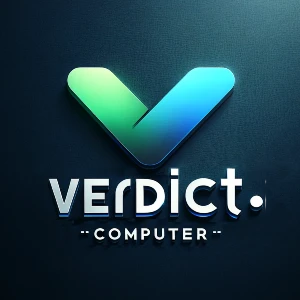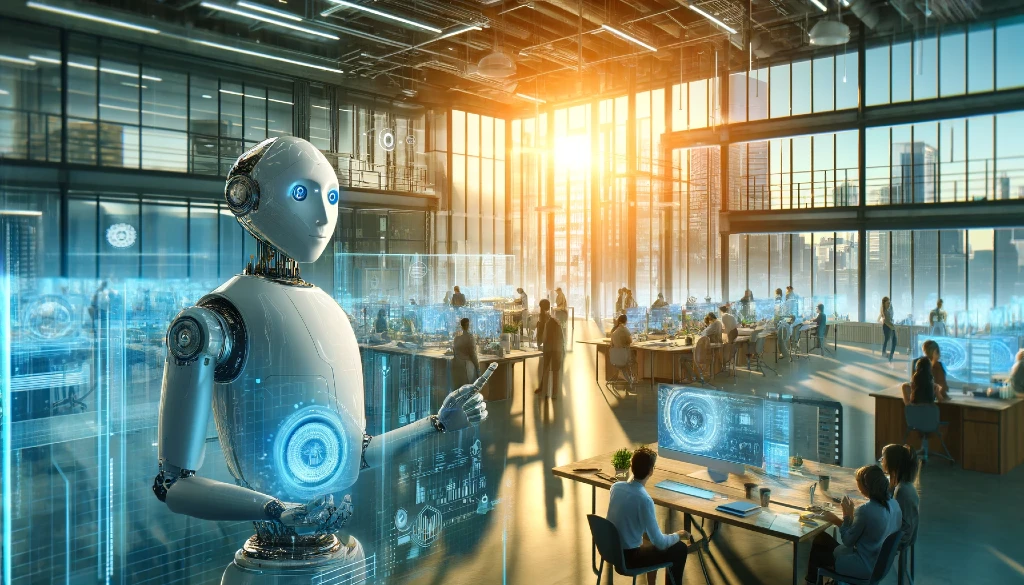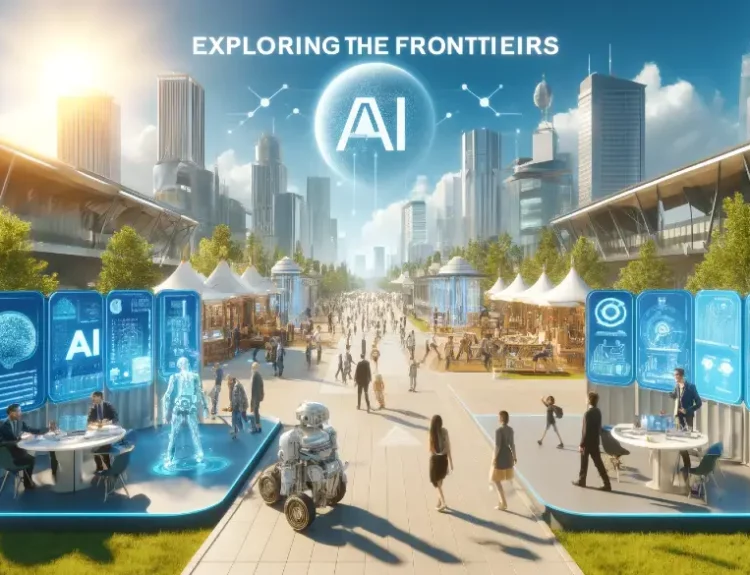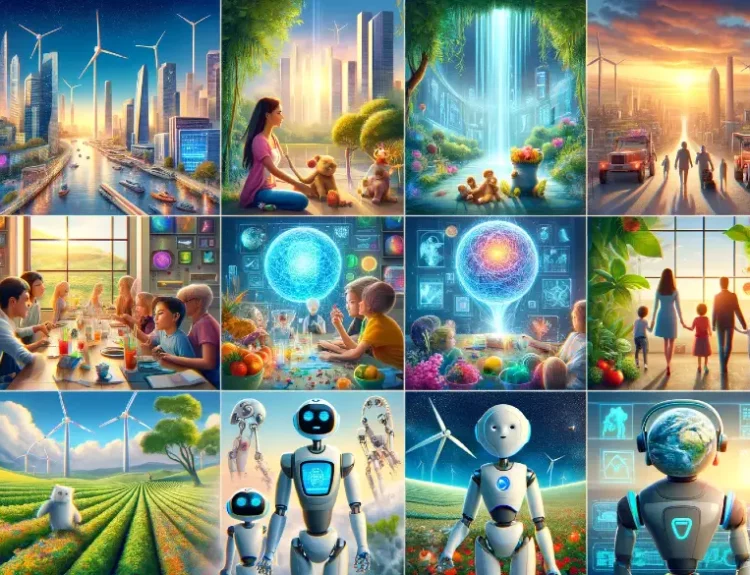Introduction
Imagine this: you walk into the office, grab a coffee, and sit down at your desk. But instead of the usual email avalanche and overflowing to-do list, your AI assistant greets you with a personalized agenda, highlights urgent tasks, and even pre-populated reports based on your recent activity. Sounds like science fiction, right? Wrong! This is the reality for many workplaces today, thanks to the rise of AI computer assistants.
These powerful tools are no longer the stuff of futuristic movies. They’re revolutionizing workflows, boosting efficiency, and fundamentally changing the way we work. Let’s dive deeper and explore how AI computer assistants are transforming the professional landscape.
The Impact of AI on Workflows
The rise of AI in the workplace isn’t just about fancy gadgets; it’s about revolutionizing workflows by streamlining processes and freeing up human potential. Here’s how AI is making a splash:
- Automation & Efficiency:
- Repetitive tasks that used to eat away at valuable time – data entry, scheduling meetings, sorting emails – are becoming a thing of the past thanks to AI algorithms for task automation. Imagine your AI assistant automatically generating reports, filtering emails, and scheduling appointments based on your preferences and colleague availability.
- This frees you up to focus on what truly matters: strategic thinking, creative problem-solving, and tasks requiring human expertise. The rise of AI-driven virtual assistants like [insert popular AI assistant name] is a prime example, acting as your digital sidekick that manages your schedule, handles basic inquiries, and anticipates your needs.
- Improved Accuracy & Decision Making:
- AI isn’t just about automation; it’s about harnessing the power of data. AI excels at analyzing vast amounts of information, identifying patterns, and uncovering hidden trends that humans might miss. This translates to improved accuracy across various tasks, from financial forecasting to risk management.
- By leveraging advanced AI technology for computer aid, businesses can make more informed data-driven decisions, leading to better outcomes and a competitive edge.
The impact of AI on workflows doesn’t stop here. In the next section, we’ll delve into specific applications of AI computer assistants across different industries, showcasing real-world examples of how this technology is transforming the way we work.
Specific Applications of AI in the Workplace
AI computer assistants are no longer a one-size-fits-all solution. Instead, they’re evolving into intelligent computer support solutions tailored to specific industry needs. Here are some real-world examples showcasing the diverse applications of AI in the workplace:
- Customer Service: Imagine a customer having a question about a product. Instead of waiting on hold, they can interact with a chatbot powered by AI. These chatbots can answer basic inquiries, troubleshoot problems, and even escalate complex issues to human agents. This not only improves customer satisfaction but also frees up customer service representatives for more intricate tasks.
- Content Creation: For marketing teams constantly juggling content deadlines, AI writing assistants are a game-changer. These tools can help with everything from generating content ideas to optimizing headlines and improving writing style. They act as a brainstorming partner, suggesting relevant keywords and ensuring your content resonates with your target audience.
- Research & Development: Gone are the days of researchers spending hours sifting through mountains of data. AI-powered research assistants can analyze vast datasets, identify key trends, and even predict future outcomes. This not only accelerates the research process but also allows scientists to focus on groundbreaking discoveries.
- Project Management: Managing complex projects with multiple deadlines and team members can be a logistical nightmare. However, AI project management tools can streamline communication, track progress in real-time, and even identify potential roadblocks before they arise. These intelligent systems take the guesswork out of project management, ensuring teams stay on track and deliver results.
These are just a few examples, and the possibilities are constantly expanding. As AI technology continues to evolve, we can expect even more innovative applications that will further revolutionize workflows across every industry.
The Future of AI in Computer Assistance
The future of AI in computer assistance is brimming with exciting possibilities. Here’s a glimpse of what’s on the horizon:
- The Rise of Artificial General Intelligence (AGI): While current AI excels at specific tasks, the future might hold the development of AGI – hypothetical AI with human-level intelligence and the ability to learn across various domains. This could lead to computer assistants that not only automate tasks but also understand complex concepts, reason creatively, and even anticipate user needs in innovative ways.
- Enhanced Personalization: Imagine an AI assistant that learns your work style, preferences, and even emotional state. This level of personalization could revolutionize how we interact with these tools. AI assistants could proactively suggest solutions, anticipate roadblocks, and become truly intelligent companions in the workplace.
- Seamless Human-AI Collaboration: The future of work won’t be about AI replacing humans, but rather humans and AI working together in a synergistic way. AI assistants will handle the heavy lifting of data analysis and repetitive tasks, allowing humans to focus on their strengths – creativity, strategic thinking, and social interaction. This collaborative approach will lead to a more efficient and productive work environment.
It’s important to acknowledge that with the rise of AI in computer assistance, ethical considerations come into play. Bias in training data can lead to biased algorithms, and the potential for job displacement needs to be addressed. However, by focusing on responsible development and open communication, we can ensure that AI is a force for good that empowers both humans and technology.
Conclusion
In conclusion, AI computer assistants are no longer a futuristic fantasy; they’re a present-day reality transforming the way we work. From automating mundane tasks to providing intelligent data analysis, AI empowers us to focus on the aspects of our jobs that truly require human ingenuity. As AI technology continues to evolve, we can expect even more innovative applications and a future where human-AI collaboration unlocks a new era of workplace productivity and efficiency.
Ready to be part of the future of AI? At Verdict, we’re building more than just another AI platform. We’re crafting a future where Machine Learning (ML) and Artificial General Intelligence (AGI) evolve through real-world interactions and the collective wisdom of our community.
Every search, chat, and shared result on Verdict contributes to building an AI that understands and grows alongside you. It’s a building block for a future transformed by AI.
Join us on this collective journey! Sign up for Verdict today and be a part of developing AI that reflects our diversity, learns from our experiences, and expands with our collective knowledge.
Want to explore the exciting world of AI further? Check out our blog page for more interesting articles on cutting-edge topics like AI-powered learning and AI-powered computer security!










